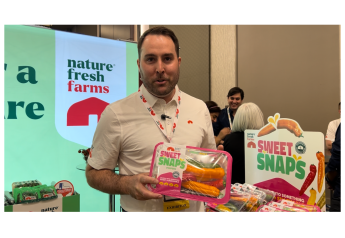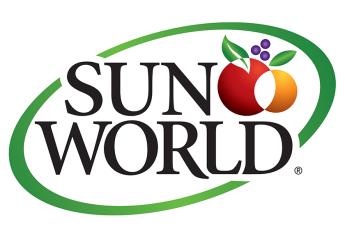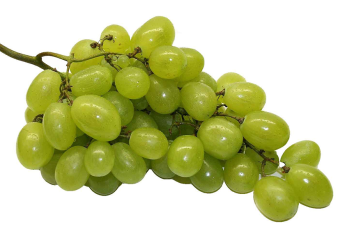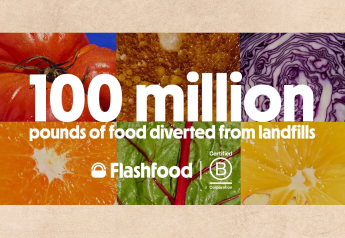Georgia produce growers focus on retail, new strategies
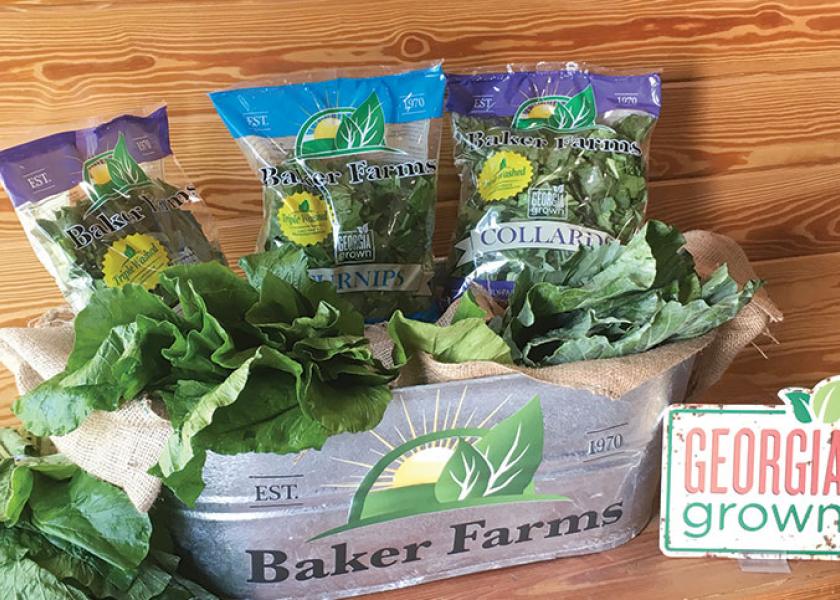
Georgia growers who supply mostly retailers say they’re doing fine, but as for foodservice business — well, not so much.
Consumers are still eating leafy greens and also demanding his other vegetables, said Heath Wetherington, director of operations for Baker Farms, Norman Park, Ga.
“I don’t think consumption of food has gone down, more just the way it’s consumed,” Wetherington said.
Some growers of cabbage used for foodservice slaw have seen a 40% decrease in sales, he said.
Baker Farms’ ratio of retail, foodservice and wholesale customers changes year to year, and with its processing facility and ability to bag leafy greens, Wetherington said the company has picked up more retail customers. However, he’s seen a drop in wholesale sales.
Aries Haygood — owner of A&M Farms, Lyons, Ga., president of the Georgia Fruit & Vegetable Growers Association and chairman of the Vidalia Onion Committee — hasn’t been doing too badly on the demand side either, and his experience isn’t unique.
“I think there’s definitely been an uptick in onion sales overall because they’re a staple item with most meals, everybody pretty much wants them and they keep longer,” Haygood said.
Most of the Vidalia onions from Bland Farms, Glennville, Ga., go to retailers, so customer demand is “right on track,” said Delbert Bland, president.
“As a Vidalia grower, we feel fortunate. Most generic onion varieties go to restaurants and have seen a drop in business due to shutdowns. But most Vidalias go to retailers, and we’ve seen an increase in sales as people cook more meals at home,” Bland said.
Shuman Farms, Reidsville, Ga., is also seeing good demand for its RealSweet-branded Vidalia onions, said John Shuman, president and CEO.
Baker Farms isn’t launching new promotions during this global pandemic, but rather is adjusting to the news and changing realities as they come.
Shuman Farms is continuing with its 2020 plans of cross-merchandising initiatives and on-pack coupons, as well as offering retail partners several options for in-store signage and display bins.
Georgia may be famous for its Vidalia onions, peaches and pecans, but it’s often the No. 1 state in the nation for production of blueberries, according to the Georgia Farm Bureau.
While it’s too soon to tell about this season, the market was better for these popular berries in 2019 than in 2018, according to U.S. Department of Agriculture’s Market News.
In the peak month of May 2019, southern Georgia moved 19.7 million pallets of blueberry clamshell pints, compared to 13.3 million in May 2018, according to the USDA.
Georgia is also one of biggest U.S. producers of watermelon, peaches, cucumbers, sweet corn, bell peppers, tomatoes, cantaloupes and cabbage, according to the bureau.
For cabbage, May 2018 was by far the highest-moving month of the year, with 28 million cartons compared to 23.4 million cartons in May 2019.
PACKAGING
Entering its second spring season and in some Winn-Dixie and Food Lion stores, Baker Farms’ 1-pound Rootables bags of turnip and beet roots are doing well, Wetherington said.
“Along with our leafy greens, when we started bagging products, it just made it more convenient. Maybe we’ll discover it makes it safer. If you’re like me, once you’re in that grocery store, you’ll pick up one, two or three tomatoes before you find the good one that you want. I think you’re going to see a lot more of that non-contact packaging. We were seeing a lot more of that before all this (COVID-19) came about,” he said.
With consumers shopping inside grocery stores as quickly as possible, Haygood expects bagged onions to be easiest, but they’re still buying bulk, “so it’s hard to predict,” he said.
The inclement weather has caused more medium-sized Vidalia onions this season, several growers said, and Shuman pointed out that size profile may work even better with bagged onion promotions anyway.
“Consumers are also preferring bagged produce for its convenience and perceived safety,” Shuman said.
Eric Bolesta, salesman for Grower Network, founded by Corbett Bros. Farms, Lake Park, Ga., said more and more of his customers are asking for value-added, packaged items.
“Some attribute it to COVID-19 stuff; others just see a consumer preference leaning into that year after year. People are more focused on it than before,” Bolesta said.
PROMOTING LOCAL
Buying Georgia-grown — or American-grown for that matter — produce is more important than ever with the roller-coaster rises and dives in demand since the pandemic took hold of the U.S., said Charles Hall, executive director of the Georgia Fruit and Vegetable Growers Association.
“You’re basically buying for the survival of the American farmer. If you lose 40% of your market because foodservice is not buying, it’s more of a survival message than a support message,” Hall said.
Even before the COVID-19 pandemic hit the U.S., Georgia and Florida growers launched an American-Grown consumer campaign, spurred on by concerns of trade deals causing an influx of imported fruits and vegetables.
The Georgia association is ramping up its buy-local efforts in collaboration with the state department of agriculture, promoting the #BuyGeorgiaGrown or #GeorgiaGrown hashtag on social media, using the slogan, “Do you know where your produce comes from?”
Members are also encouraged to use the #AmericaGrowsitBest hashtag.
Forced to find new lines of business during the coronavirus fallout, Hall said there is a lot of growth in farmers selling mixed-produce boxes in their local areas.
“They’re looking for ways to get produce moved,” Hall said.
On 500 acres in Moultrie, Ga., Chill C Farms grows bell peppers, yellow squash, eggplant, cabbage, cucumbers, tomatoes, zucchini, and specialty peppers, selling to wholesalers and directly to consumers. The farm has seen growth in its mixed-produce boxes for pickup or delivery.
Lewis Taylor Farms, Tifton, Ga., grows more than 8,500 acres of produce, including cantaloupes, watermelon, pepper, tomato, squash, cucumbers, greens, broccoli.
In mid-April on its Facebook page, the company started offering the mixed-produce boxes to the public for pickup without having to leave their vehicles, and the response was so great that the consumer boxes returned the following weeks.
The old channels of business will come back, one way or another, growers say.
Wetherington said his restaurateur friends tell him when the country re-opens, they will need to restock 100% of their inventory.
“I do think there will be a surge. I think there will be a lot of good movement,” he said.
“I ask people to be patient, because farmers haven’t quit, and we want to be here for America when it gets back on its feet, 100%.”


